Written by Laurie Ray, MPT, PhD, who has over 18 years of experience in school-based practice and is a state-level PT consultant for public schools. She also consults for Medicaid and Adapted Physical Education for her state and is an Associate Professor at UNC-Chapel Hill. Laurie also teaches continuing education via Apply EBP. More about these courses after the article below.
Setting student goals can be one of the most challenging aspects of school practice. If you do not set goals well, the rest of your practice (intervening, demonstrating progress, progress monitoring, reporting) will be a struggle.
How many hours can we invest in crafting these guiding lights of our daily work? It is difficult to peer into the crystal ball and determine how progress should be measured or how much progress any student will make over the time frame of her/his Individual Educational Program (IEP) given limited data, observations or, dare I say, a last minute request for a ‘please don’t let us go out of compliance’ evaluation.
I have collected some tests or challenges we can set to a goal after it is developed. Hopefully this will prevent eventual frustration with a goal that is lacking, before the first progress report. They help to highlight weaknesses in the goal before learning it the hard way!
Here they are. Can your goals pass all of them?
- So What? Test
- Ask if the goal is attained, so what? Will it make a meaningful difference in the function of the student?
- Beware of goals at the body function and structure level. Focus on participation.
- Who Cares? Test
- This is a corollary of the So What? Test.
- If no one cares about this goal, one of two things are true:
- I have not explained, demonstrated or connected the importance of this function/goal area – If it critical, we must help everyone understand why/how
- It is not truly important – On occasion, we must accept that all things important to us as OTs and PTs are not important to everyone or overall.
- Cadaver Test
- Thanking Lauren Holahan, OT for this one!
- If a dead person can accomplish the goal (e.g., Laurie will tolerate the stander for 10 minutes daily…), it is not a good nor a participatory student goal. ‘Nuf said.
- Parent Test
- Can the parent of this student come in, observe the focal activity and determine if the goal is met or not met?
- If they can, the goal is clear, measurable and likely part of the daily routine.
- Fit Test
- Does this happen naturally as part of this student’s school day? Is the criterion something that occurs or are you creating a criterion which requires something ‘extra’? Does this goal fit the school day/ this class?
- Fitting well within the routine makes for more straightforward and easier progress monitoring.
- Speaking of progress monitoring/data collection…the next challenge is the…
- Do I Want to/Can I Collect this Data? Test
- If we do not want to collect this data, why not? This indicates it is too complicated or not important.
- Teachers should not be the only data collectors!
- If we write the goal well for participation, all team members (parents, OT, SLP, paraprofessionals) should be interested and able to collect the data.
- Can the student collect the data?
- Sufficient Progress Test
- Is this goal set high enough?
- Are we requiring all the progress we can get?
- Will the rate of progress be adequate to get to where the student needs to go?
- Would this goal pass the Endrew ruling?
- Drive Test
- What is the need driving this goal? Is this goal truly addressing educational need(s) during school routines?
- If you can cut this goal from the IEP and insert it into another practice setting without alteration, perhaps it is not tied closely enough to educational needs?
- Big Picture Test
- Will this goal get her/him closer to the ultimate goal for her/his education/time in school?
- Is it necessary from a big picture perspective? Is this a good investment of the student’s time? Is it important?
I hope you find one or more of these helpful. If you have any challenges or questions for student goals that are illuminating, please email them to me (laurieraypt@yahoo.com)? I would love to add insights from everyone who reads this!
Wishing you all insightful, practical and lofty IEP development.
Catch the SeekFreaks author, Laurie Ray and other experts in…
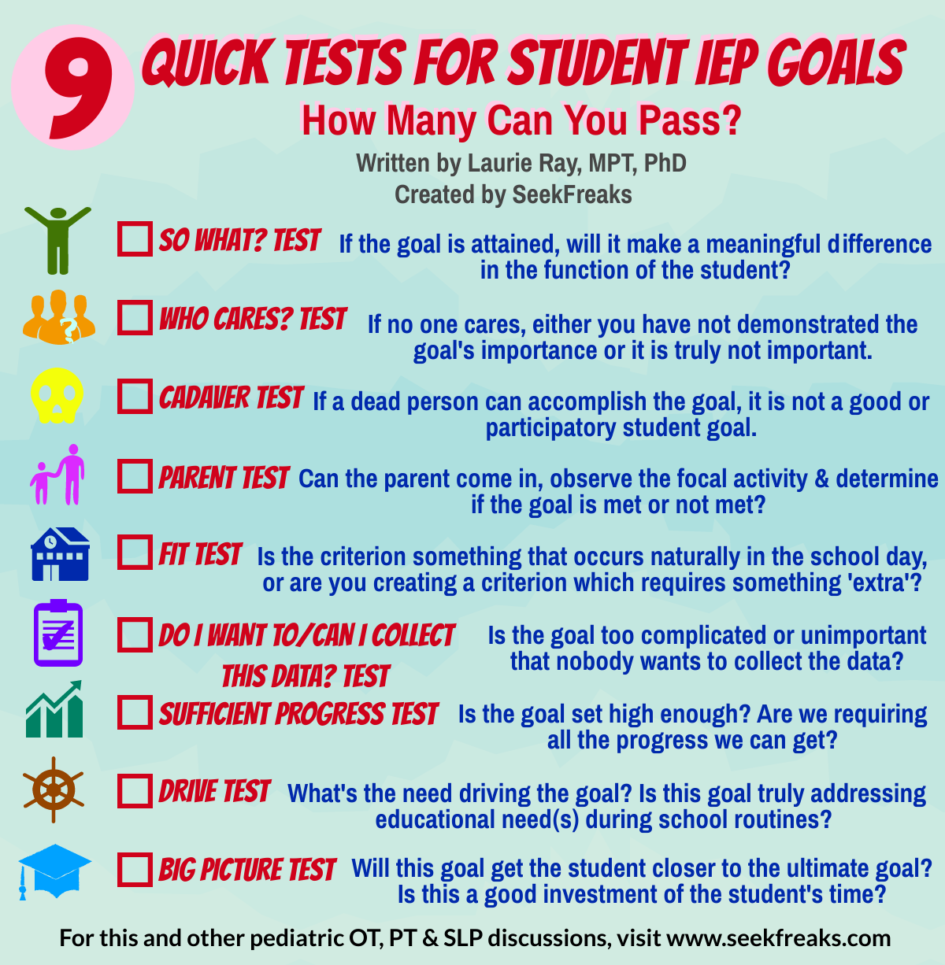
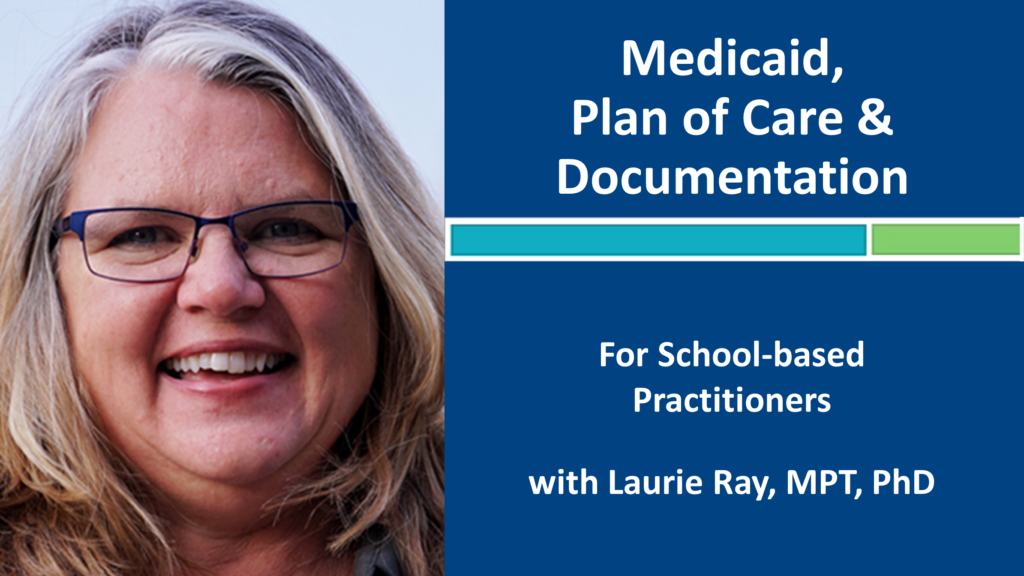
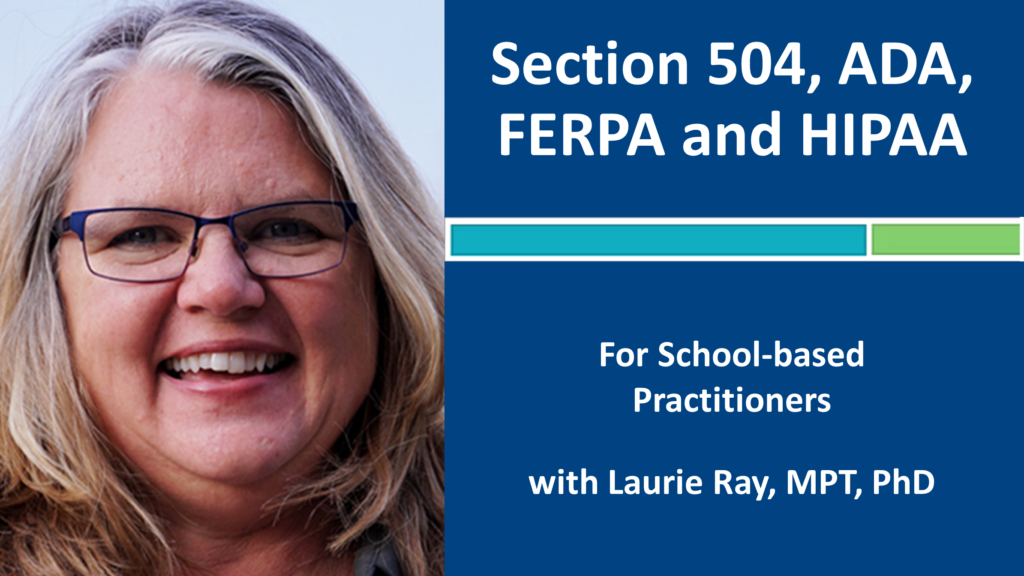
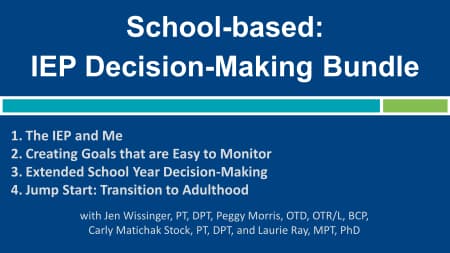
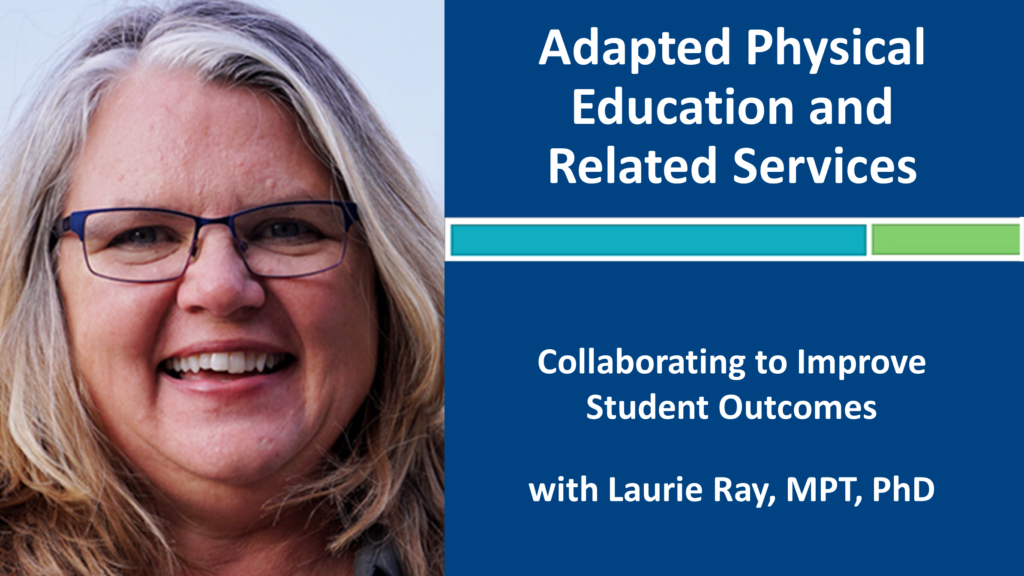
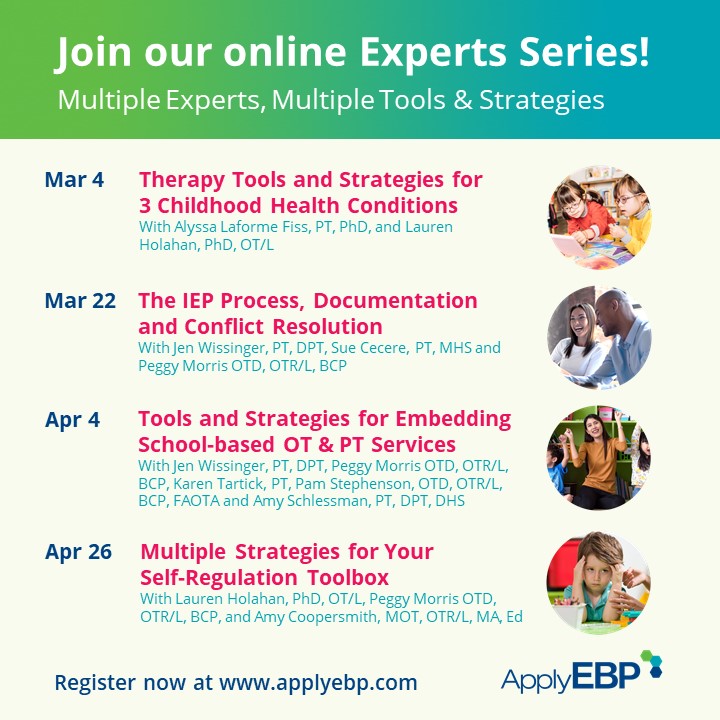
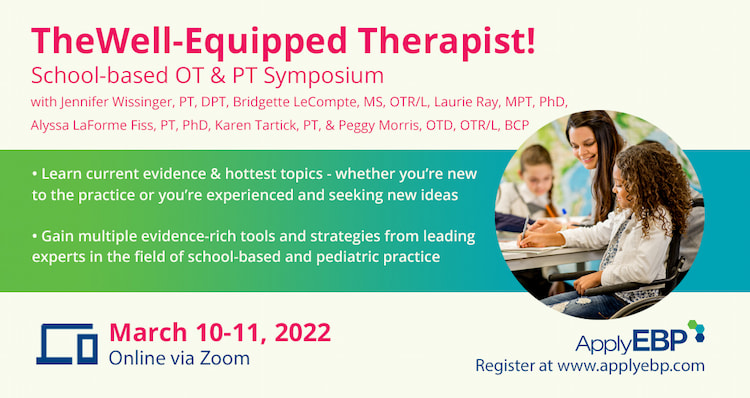
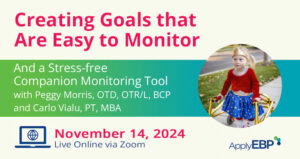



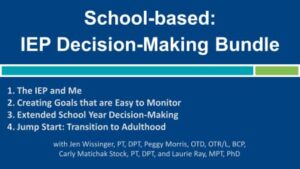
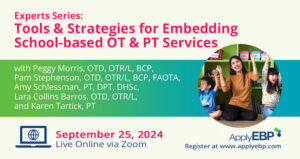

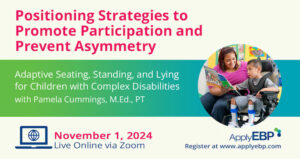

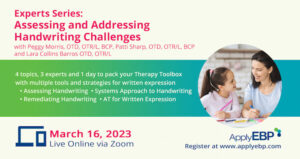
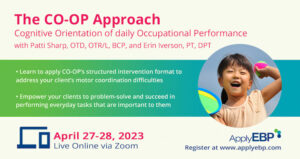
December 11, 2020 at 4:23 pm
I am looking for comprehensive definitions of direct, consultation and recheck services for school physical therapy. Any idea where I may find that?
March 18, 2021 at 5:25 pm
Thank you for your question, Claudia! In educational practice, so much is subject to interpretation, my sense is that each state and district may have varied definitions. This is where IDEA really supports us to individualize services for our students. There is no requirement to indicate these delivery models, just describe exactly what is needed. I don’t know a good source for these definitions, sorry!